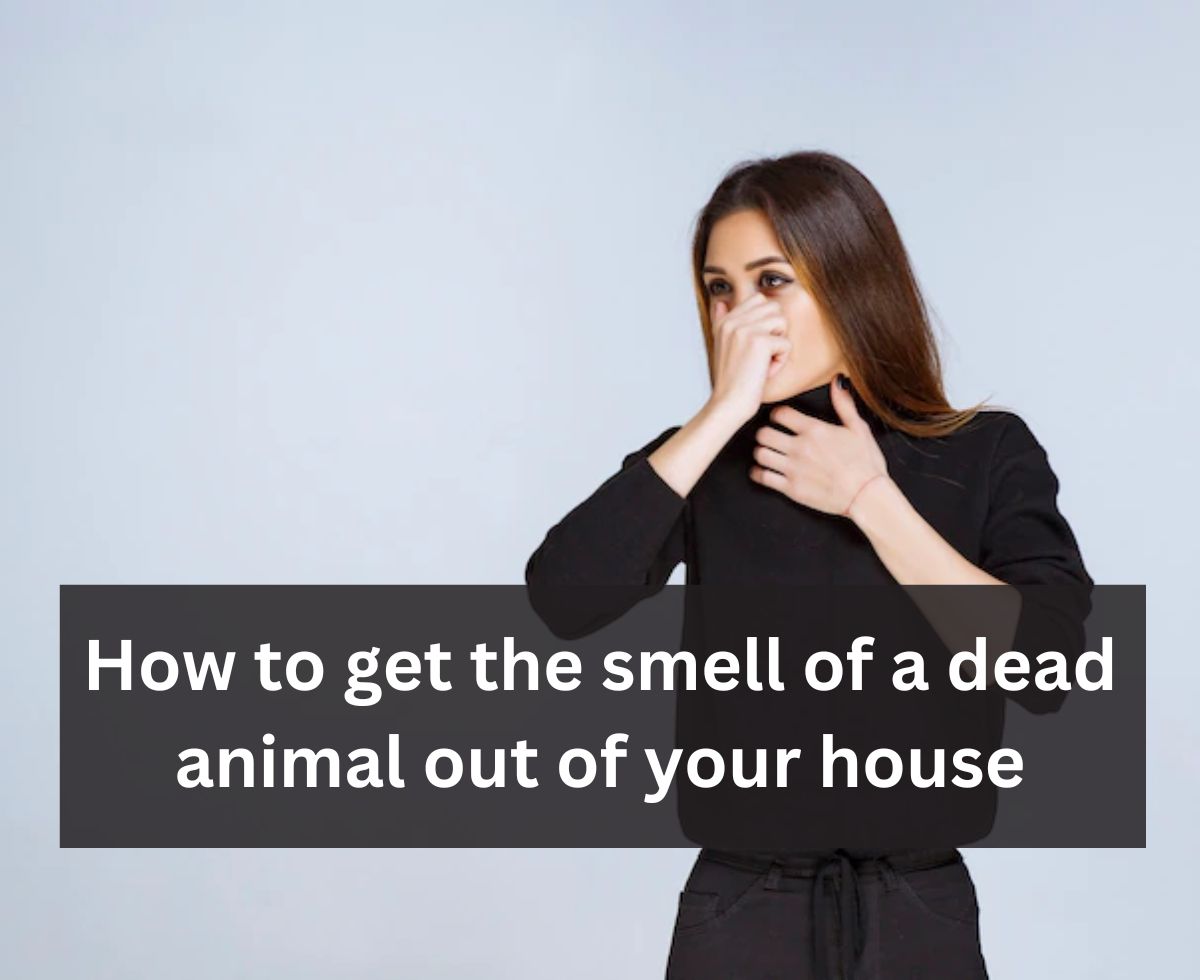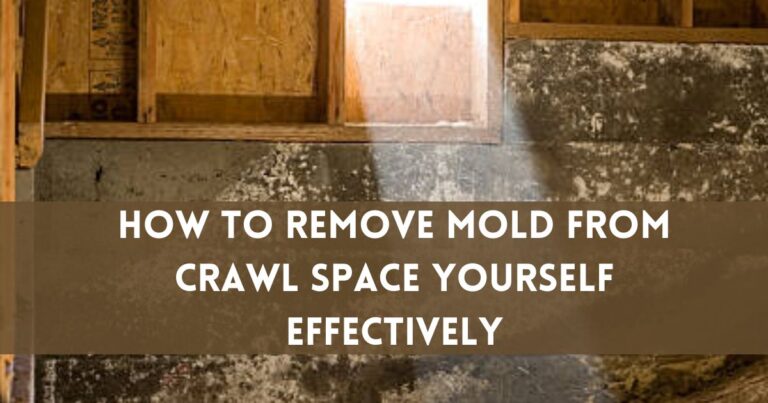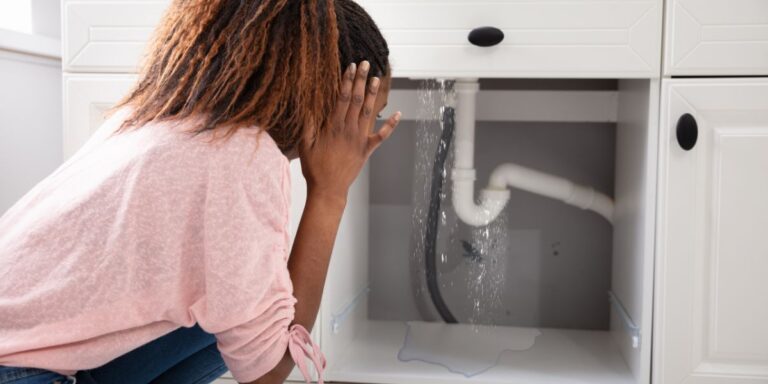How To Get The Smell Of A Dead Animal Out Of Your House
A decaying animal smell is something that can emit an unpleasant odor in the house and make your home uninhabitable. Some people get obsessed with finding ways to remove the smell, while others try to move out of the house. Most homeowners don’t know that you can easily get the smell of the dead animal out of your home effortlessly.

Find and remove the source of the smell as soon as possible and thoroughly clean and sanitize the area where the animal carcass was found to get rid of the smell of a dead animal in your house. Additionally, using vinegar, baking soda, and lime can help to neutralize odors and prevent future infestations.
Continue reading to know the steps to take when finding and removing the smell of a dead animal from your home.
How to get the smell of a dead animal out of your house
It’s no surprise that many people dread the task of having to clean their homes. Not only is it a lot of work, but it can also be quite tedious and time-consuming. However, the steps below can make the process a little bit easier, and a lot less smelly.
Step 1: Let fresh air inside the house
Open all the windows, doors, and vents in your house to let fresh air circulate. This will help reduce the smell of the dead animal. You may also consider purchasing a dehumidifier or air purifier to help remove the odors from your home.
Step 2: Access where the smell is coming from
The smell will most likely come from a carcass, so you will need to identify the location of the carcass. Use your nose to locate the smell’s direction and a flashlight to check dark corners. There are three main places that are most likely to have a dead animal: the attic, basement, and crawl spaces.
Attic – The attic is the most likely place to find a dead animal. If you notice the powerful smell in your attic, it can indicate a dead animal up there. A dead animal smell in the attic usually means that the animal has died in a confined space and is starting to decompose.
Basement – The basement is another likely place to find a dead animal under your house. If you notice the smell is more concentrated in the basement, it indicates a dead animal may be down there. Basements are dark and damp, so they attract animals.
Crawl Spaces – Lastly, crawl spaces are also potential places to find a dead animal. Crawl spaces can be challenging to access, so if you think the smell is coming from a crawl space, it would be best to call a professional for help. Crawl spaces include enclosed, usually small spaces like inside walls, under floorboards, or between studs. The dead animal smell in the wall is not something a homeowner should try to handle alone.
Step 3: Have the carcass professionally removed
The most effective way to remove a dead animal is to have it professionally removed. Professionals can locate and remove the animal quickly, so there is less chance of it remaining in your house and causing an odor. This can be expensive, but it is the best option to rid your home of a dead animal smell quickly. Make sure the professional you hire has experience with this job and is careful to contain the carcass and any associated smell.
If you are unable to access professional help, you may be able to locate the animal yourself and dispose of it appropriately. Be sure to wear gloves when handling a dead animal, as there may be contaminants associated with the body that could cause health problems. Once the dead animal is disposed of, your house should no longer smell like it.
Step 4: Clean the area
Once the animal has been removed, you’ll need to clean the area. This may include vacuuming areas where the animal was located and any remaining fur or other residues. A mop may also be required to clean up any spills or fluids that may have been left behind. Use a strong solution of bleach and water to remove any lingering odors. If the animal is in an area where the floor cannot be removed, you may need to apply a sealant or other product designed to kill odors. Be sure to follow the directions on the product carefully, as improper use can be hazardous to your health.
Natural ingredients that can help get rid of dead animal smell:
Vinegar – Vinegar can be used to neutralize odors. Mix one part white vinegar with two parts water and spray the solution in areas that smell of dead animals. The vinegar solution should be reapplied frequently to ensure the odors are eliminated.
Baking soda – Baking soda is excellent for absorbing odors. Sprinkle a generous amount of baking soda around the areas that smell of dead animals to help absorb any remaining odors. You may need to reapply the baking soda periodically until the smell is gone.
Lime – Lime is a powerful odor fighter. Squeeze some fresh lime juice into the area where the dead animal was located and let it sit for a while. The lime juice will help to neutralize the odor.
If you have been wondering if will lime kills dead animal smell or will vinegar get rid of the dead animal smell, the answer is yes. Lime is great for getting rid of odors, and its acidic properties help to break down any remaining residue in the area that may be causing the smell. Vinegar also neutralizes odors by breaking down any remaining organic material that may be causing the odor.
Step 5: Deodorize the area
Once you have cleaned and sealed the area, you’ll need to deodorize it. You can use store-bought odor neutralizers or make your own by mixing baking soda and essential oils. Sprinkle the mixture over areas that may have been affected by the dead animal, and allow it to sit for several days. After a few days, vacuum up any remaining odor neutralizer.
Step 6: Prevent future infestations
The best way to avoid another dead animal smell in your home is to prevent an infestation in the first place. Inspect your home regularly for any signs of an animal infestation, such as droppings or chew marks on furniture. Seal any cracks and crevices in the walls or floors, and keep all your garbage containers tightly lidded. If you notice any animal activity in or around your home, it is best to call a professional immediately.
FAQs
How long does it take to smell a dead animal?
The smell of a dead animal can become noticeable anywhere from a few hours to several days after the animal has died. The time it takes to notice the smell will depend on several factors, such as the animal’s size, how long it has been dead, and other environmental factors. Furthermore, the scent can linger in a house for days, weeks, or even months, depending on the situation.
How long does it take for a dead animal to quit smelling?
Depending on the animal’s size and how quickly it is removed, it can take anywhere from several days to a few weeks for the smell of a dead animal to completely dissipate from home. To speed up the process, locate and remove the source of the smell as soon as possible. To prevent odor from reoccurring, thoroughly clean and sanitize the area where the animal carcass was found.
Can you get sick from breathing in a dead animal smell?
Yes, it is possible to get sick from breathing in the smell of a dead animal. The foul odor produced by a decomposing carcass can contain harmful bacteria, fungi, and other microorganisms. These can cause various illnesses, including respiratory infections and skin rashes. The smell of a dead animal can also contain noxious gases, such as methane and hydrogen sulfide. Inhaling these gases can cause headaches, nausea, and other health problems.
Conclusion
The above tips and advice should help you get the smell of a dead animal out of your house quickly and safely. It is important to remember that the best way to avoid another dead animal smell in your home is to prevent an infestation in the first place. Regularly inspect and seal any cracks or crevices in your home to prevent animals from getting inside. If you come across a dead animal, follow the above steps for safe and effective removal. Doing so will help keep your home free of odors and potential health hazards.







